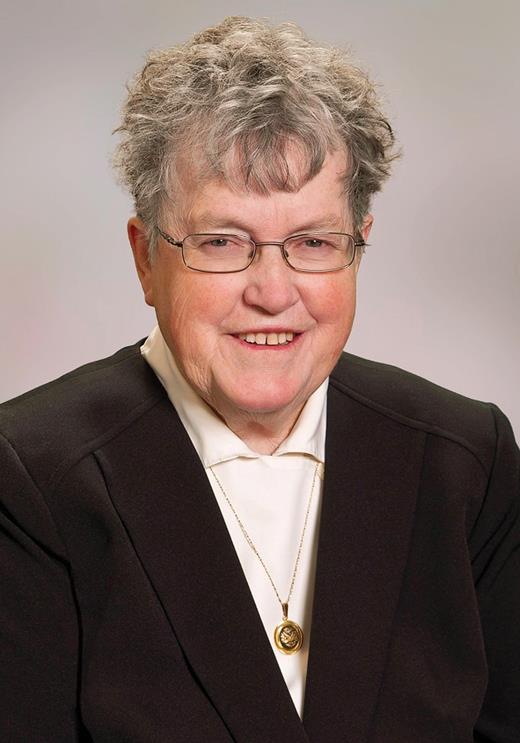Sherrill Slichter, MD, passed away on August 13, 2025, at age 88. Sherrill was a truly remarkable translational scientist, colleague, and friend.
During her 50-year career at the University of Washington and Puget Sound Blood Center (now Bloodworks Northwest), Dr. Slichter served in multiple leadership positions, including medical director, director of research, and executive vice president of research at Bloodworks NW. Her contributions to the field of transfusion medicine revolutionized platelet transfusion therapy. As importantly, she exemplified a generation of women who paved the way for female physicians and scientists who followed. Given the obstacles she faced, her achievements are even more notable.
Dr. Slichter grew up in Wenatchee, a small town in central Washington. Girls needed permission from their parents to study chemistry, physics, or mathematics, and few strayed far from home. Mathematics excited Sherrill but seemed too isolating, so she took an aptitude test that said she should be a doctor, and she “put her head down and figured out how to get there.”
Like all female medical school applicants in 1959, Sherrill was asked why she’d rather not be a nurse and how she would manage raising children. As one of the five women in her medical school class of 100, she was often reminded that she was taking the seat from a man who “could actually use the education.” She supported her schooling by working as a night scrub nurse and X-ray room file clerk, sometimes two jobs at a time, and still managed to graduate near the top of her class.
In 1967, after completing her residency in internal medicine, Sherrill came to the University of Washington as a hematology fellow to work with Drs. Clement Finch and E. Donnall Thomas. Hemopoietic stem cell transplantation was in its infancy, and patients undergoing hematopoietic stem cell transplantation bled. There was an intense need for platelet transfusion. Platelet collection and processing needed to be optimized, and platelet immunization and refractoriness needed to be understood and solved. Starting with dogs, then human volunteers, and finally patients, Dr. Slichter tirelessly pursued answers.
Dr. Slichter iteratively refined methods for platelet collection, storage, and safety. She developed methods for assessing platelet survival in vivo and transfusion efficacy. She was instrumental in determining platelet transfusion indications, dose, and best practices; led the first large multicenter trials; and shared her findings in more than 200 publications. She received prestigious awards from numerous national and international organizations, including the Henry M. Stratton Medal from ASH and the Karl Landsteiner Memorial Award and President’s Award from the Association for the Advancement of Blood and Biotherapies. Ever humble, she often brought her entire lab team to award ceremonies, insisting they stand with her — emphasizing that research success takes a dedicated team, with each person playing an important role.
Dr. Slichter also showed that immune thrombocytopenia resulted from decreased platelet production, helped define the platelet alloantigens responsible for post-transfusion purpura and neonatal alloimmune thrombocytopenia, and set up the first platelet donor registries.
Those of us fortunate enough to be Dr. Slichter’s mentees and close colleagues benefited greatly from her generosity. She thoughtfully and kindly shared her expertise, listened to ideas, honed our questions, reviewed our data and writing, and always included us in decision making. She taught us to stand by our data (“the data are the data”) and to persevere (“get ‘er done!”). One of her biggest accomplishments was encouraging and mentoring the women who followed her, teaching us to always demand a seat at the table. Dr. Slichter’s legacy lives on in the lives she saved, the science she advanced, and the countless individuals she inspired. She will be deeply missed.

